Here are the latest newsletters from Publishing Talk:
Publishing
Talk: Advice for Writers – call for submissions
|
|
Advice for Writers –
call for submissions
Posted: 02 Dec 2020 09:37 AM PST
Reading Time: 3 minutes Our core purpose at Publishing Talk
is to educate new and emerging authors – so they can navigate the publishing
industry successfully and reach their full potential as writers. If you’re a
published author (traditional or self-published), I’d love to involve you in
a new project. Advice for Writers
I’m looking for short pieces of
advice for new writers from those who have gone before and got a publishing
deal or successfully self-published. I’m also interested in hearing from you
if you’re a creative writing tutor, agent, editor or other industry
professional with valuable advice to share. It can be anything from a pithy
phrase to a short paragraph, and about any aspect of becoming a successful
author, such as: § how the industry works § the publishing process § how to get an agent § advice about writing –
from the broad (e.g. productivity tips) to the specific (e.g. tips about
writing dialogue) § inspiring,
philosophical or psychological advice (e.g. about handling rejection) § tips for book
marketing and promotion § tips for dealing with
being a published author – such as how to handle press interviews or
successfuly attend literary festivals § …or anything else you
can think of! What is your best piece of advice
for new writers starting out? What do people always ask you – and what do you
usually tell them? How will you use my
piece of advice?
If chosen, I’d like to use your
advice in one or more of the following ways: § In a blog post, which I will
update periodically § In a short ebook, grouped by
topic or theme (if we get a lot of submissions) § As quote cards on our Instagram account –
which I can share on other social media too. What’s in it for me?
§ The warm glow of
helping new and emerging authors with your best piece of advice! § If used on the blog,
your affiliation will include a link to your book and/or company or
institution. § If included in an
ebook, the proceeds from this will help us continue and develop our
educational programme for new authors – including our masterclasses
and any other events we run. § If used on our social
media channels, visibility to our large number of followers (we have 300,000+
on Twitter, for example, @publishingtalk),
along with a tag of your name (if you’re on the social media channel your
quote is shared on). You might want to include your social media handles
along with your submission for this reason. Sounds great! How do I
send it to you?
Use the contact form
on this site, with ‘Advice
for Writers‘ in the subject line. Please make sure you include your name and affiliation. Which could
include the title of your latest or best-known book (e.g. Jon Reed, author of Get Up to Speed with Online Marketing),
or your job title (such as lecturer
in creative writing at Birkbeck, University of London or literary agent at Curtis Brown).
Or whatever makes most sense for you. When do you need it
by?
I’ll keep the blog post updated
periodically – for a while at least – unless and until it gets too unweildly!
If we do an ebook, that will be compiled and published once we have enough
entries. So… there’s no deadline as such –
but the sooner you send something, the more likely it is to be included, and
the sooner we can start sharing some of these on a blog post and on our
social media. Many thanks in advance – and I
look forward to hearing from you! Photo by Patrick Fore
on Unsplash. The post Advice for
Writers – call for submissions appeared first on Publishing Talk. |
|
|
|
|
Google, 1600
Amphitheatre Parkway, Mountain View, CA 94043, United States |
|
Publishing
Talk: MASTERCLASS: How to Become a Kindle Bestseller – with Nicola May
(Online, Weds 9th Dec, 200)
|
|
MASTERCLASS: How to
Become a Kindle Bestseller – with Nicola May (Online, Weds 9th Dec, 200) Posted: 26 Nov 2020 05:55 AM PST How to
Become a Kindle Bestseller, with Nicola May – Online, Weds 9th Dec 2020 Join self-publishing sensation Nicola May in conversation with Jon Reed –
and find out how she became a #1 Kindle bestselling author. Masterclass: How to Become a Kindle Bestseller This post contains Amazon
affiliate links to the books mentioned. See our Affiliate
policy for more details. Nicola May’s books are also available
in our Bookshop.org
bookshop. Want to get to #1 on
Kindle? Let Nicola May show you how.
Our December event is full of seasonal
sparkle and goodwill to all authors, as not only will Nicola impart words of
wisdom about her success, she will also introduce her cracker of a new
release, Christmas in Cockleberry Bay. The Corner Shop in Cockleberry
Bay, book 1 in Nicola’s bestselling Cockleberry Bay
series, became the #1 bestselling Kindle book across all genres in the UK in
2019, and gathered thousands of five-star reviews on Amazon. But how did she
do it? All will be revealed in this essential masterclass for any author who
wants to become a bestseller. What we will cover
§ What it takes to
become a Kindle bestseller § The pros and cons of
self-publishing v. traditional publishing § How to spot trends and
write what people want to read § Writing in genres and
series § The Kindle Direct
Publishing (KDP) platform § Nicola’s top tips for
marketing your book. Workshop includes:
§ Valuable insights,
tips and advice from Nicola May § Your chance to ask
Nicola anything about self-publishing § A PDF resource with
Nicola’s top tips for self-publishing success § Access to a video
replay of the event. About Nicola May
Nicola May is a rom-com superstar.
She is the author of a dozen romantic comedies, all of which have appeared in
the Kindle bestseller charts. Two of them won awards at the Festival of
Romance, and another was named ebook of the week in The Sun. Described by
Winifred Robinson of BBC Radio 4’s You and Yours as ‘the invisible
bestselling author’, Nicola campaigned successfully for the introduction of
ebook charts in the publishing trade press. In November 2020 she also signed
a three-book deal with Hodder (see Nicola May’s
interview on this blog for more details). Christmas in Cockleberry Bay
is out now and can be purchased from Amazon. You can also find all books by
our masterclass speakers in our Publishing
Talk Bookshop.org Bookshop, which also helps support local
independent bookshops in the UK.
About the Publishing
Talk Masterclasses
Our online masterclasses are talks,
interviews, seminars and workshops from successful authors, publishers,
agents and industry experts designed to help you fulfil your potential as an
author. Find out more on our masterclasses
page. Discounts available for
Patrons. See our Patreon page for details. You will be sent a link to the
online workshop 1hr before the start time of 6.30pm (GMT). You can join this masterclass from
anywhere in the world. If you’re outside the UK, please use this time zone converter to check your local
live streaming time. 6.30pm GMT | 10.30am PST |
1.30pm EST | 7.30pm CET The post MASTERCLASS:
How to Become a Kindle Bestseller – with Nicola May (Online, Weds 9th Dec,
200) appeared first on Publishing
Talk. |
|
| |
|
Google, 1600
Amphitheatre Parkway, Mountain View, CA 94043, United States |
|
Publishing Talk: INTERVIEW: Kindle bestseller
Nicola May considers the pros and cons of self-publishing v. traditional
publishing
|
|
INTERVIEW: Kindle
bestseller Nicola May considers the pros and cons of self-publishing v.
traditional publishing
Posted: 17 Nov 2020 08:18 AM PST
This post contains Amazon
affiliate links to the books mentioned. See our Affiliate
policy for more details. Nicola May’s books are also available
in our Bookshop.org
bookshop. Jon Reed: You’ve had huge
success with the Cockleberry Bay books as a self-published author. Why have
you now turned to traditional publishing? Nicola May: I was happy
self-publishing and not looking for a traditional publisher but when
approached by Hodder, I weighed up the options. The main one is that I have
not hit the dizzy heights with paperback sales and am only stocked in a
handful of high-street stores. One of my dreams has been to become a Sunday Times bestselling
author. Just to see my name on that list in Culture Magazine would make my Sunday roast
taste a whole lot better. With the backing of a mainstream publisher now
behind me, I should be able to achieve this. Importantly, I am not in any way
turning my back on self-publishing. I still own all the rights to the 11
books on my backlist, which include the four-book Cockleberry Bay series.
I see my relationship with Hodder as another string to my publishing bow. JR: The Cockleberry Bay books
were picked up by Lightning Books after your success with the first one – but
for print only. How did that come about – and what are the advantages of that
model for self-published authors? NM: Scott Pack, previously with
Harper Collins and Waterstones, has always championed my writing. Now working
with Lightning Books, he saw the opportunity to take my print books on. Being
honest, I don’t think many publishers would entertain this model as ebooks
cost so little to produce, so are less of a risk to publish. For me it is a
perfect scenario, as managing suppliers and paperbacks from home had become a
bit of a chore. I was constantly packing boxes in my front room and making
trips to the courier stop or post office. If an author can secure this model,
then it is a big win, as keeping your own rights for ebooks is obviously more
lucrative. I continue to happily sell
paperbacks of my Cockleberry
Bay series through Lightning. And now that I will be known as a
traditionally published author, it will be interesting to see if my current
and future self-published books start to gain more attention from bookshops. JR: You were described on BBC
Radio 4’s You and Yours as ‘the invisible bestselling author’ last year, because
self-published authors – at the time – didn’t appear in ebook charts. How has
your campaign changed things? NM: I was delighted that Philip
Jones, Editor of The Bookseller,
listened and actioned this important industry breakthrough immediately. The
magazine now includes the Bookstat E-Book Top 10 chart, which includes weekly
sales from self-published authors. It is another step forward for the
recognition of indies, and for the industry and booksellers to further
acknowledge that it isn’t just mainstream publishers who snap up talent.
NM: The Ferry Lane Market
trilogy will be based around a street market in the fictitious estuary town
of Hartmouth in Cornwall. Each novel will centre on a different lead
character and feature a set of core characters from the tight-knit community
in and around the market. They will take on a similar style to the Cockleberry Bay series as
that formula has worked so well for me. JR: Will you stick with
traditional publishing now, or still self-publish some books? What are the
pros and cons of each approach? NM: Firstly, unless you are
incredibly lucky, publishing your book by any method is not a guaranteed
get-rich-quick scenario. In both cases you need to be prepared to keep
writing and keep working hard. I can’t answer your question about traditional
publishing as I need to see how it goes. I will definitely continue to
self-publish. Self-publishing pros § You retain control of
your work § You can choose your
own timings for book release § Financially, you
receive the whole piece of the pie. Self-publishing cons § You need to be good at
self-promotion § You need to be driven
and dedicated § If you want to expand
to paperbacks, you may not be taken seriously by the industry or booksellers. Traditional Publishing pros § You are under the
umbrella of a reputable and respected organisation § You have the weight
and experience of a whole team of people behind you for marketing, promotion,
editing etc. § You are given the
opportunity to enter new markets with paperbacks at home and overseas § Your access to media
is greatly improved. Traditional Publishing cons § The control of your
work is taken out of your hands § Deadlines can cause
pressure § You have to share the
money pot. JR: What would you advise new
authors considering self-publishing? NM: Head straight to the Amazon KDP portal,
sign up and start reading. They make the process simple from the start. Nicola May’s latest book in the Cockleberry Bay series, Christmas in
Cockleberry Bay, is out now. Welcome to Ferry Lane
Market publishes in July 2021, and is available to
pre-order now. Sign up for Nicola May’s
masterclass on How to Become
a Kindle Bestseller, on Weds 9th December 2020, for her top
tips, advice, and a live Q&A. The post INTERVIEW:
Kindle bestseller Nicola May considers the pros and cons of self-publishing
v. traditional publishing appeared first on Publishing Talk. |
|
| |
|
Google, 1600
Amphitheatre Parkway, Mountain View, CA 94043, United States |
|
Publishing
Talk: Latest 1 posts including “Welcome to publishingtalk.org”
|
|
Posted: 28 Oct 2020 12:38 PM PDT
Reading Time: 3 minutes Oh, hello. Yes, it has been a while.
It’s been a strange year, hasn’t it? I hope you’re safe and well and have
been coping with lockdown. And please don’t feel bad if you’re not writing
that novel we’re all supposed to be knocking out during these stressful
times. I mean, who has the time, in between trying to stay afloat, working
from home, home-educating the kids, staying safe and coping with all sorts of
anxieties and horrors? It’s not a sabbatical, and you really don’t have to be
productive. That said, one thing I have finally
produced is this re-launch of the Publishing Talk website. You may have
noticed a domain name change, from .eu to .org. Why? Because Brexit. I’m
based in the UK, which is sadly no longer in the EU, and .eu domains will be
turned off at the end of the year for people outside the EU. It’s a sad moment for me. Not least
because, in 2008, I was invited to an event at the European Parliament in
Brussels to mark the second anniversary of the .eu domain, along with small
businesses from around the EU who were also early adopters of the domain. It
was great to get a deper insight into the work of the EU, and to meet fellow
European small business owners from every corner of the EU.
Jon Reed
meets Sharon Bowles MEP at the European Parliament in Brussels, 2008 At the time, I chose .eu because it
was more international than .co.uk, and seemed modern and forward-looking.
I’m choosing .org now for similar reasons: it’s even more international (about
a third of our readers are in the US – howdy!), and it also fits with where I
want to take Publishing Talk in the future: as a supportive virtual
organisation with social goals as well as business ones. So much has changed since the
Publishing Talk blog launched. 2007 was pre-ebooks, pre-iPhone and pre-Kindle
(though all those things were available by the end of that year – in the US
at least). Social media was new, and digital was seen as a threat to
publishers – yet has since been embraced, albeit with varying degrees of
enhusiasm. And self-publishing, enabled by the new Kindle Direct Publishing
(KDP) platform, was just about to take off. The other thing that’s changed since
this blog launched is our audience. My background is as a publisher, before I
moved into social media consultancy and training for publishers and others.
So when I launched, I thought I was writing for publishers, about how to
navigate social media and this new digital landscape. But the main audience –
of course – turned out to be new and emerging authors. Authors have always
been ahead of the curve, looking to the future, and embracing new
technologies and opportunities. There’s a lot more to come,
including new resources for authors. I hope you’ll join our community and be
a part of its development as we grow and increase our support for new
authors. You are very welcome here. Photo by Belinda
Fewings on Unsplash The post Welcome to
publishingtalk.org appeared first on Publishing Talk. |
|
5 rules for setting a
writing goal you’ll stick to
Posted: 13 Dec 2017 11:00 AM PST Is your News Years’ resolution
to write more? Every year? Follow Chris Smith‘s
five golden rules to set a writing goal you’ll stick to.
You might have a burning idea for a
novel, something half-finished you’re determined to complete – or a blog that
you know you need to update more regularly. Whatever it is you want to write,
you’ve decided, THIS is the year that you finally want to kickstart your
creative project. Amazing! But when research shows
that 92% of all New Year’s resolutions rarely make it past January, how can
you make sure your writing resolution sticks? The first step is having a
really great writing goal. Writing goals are super-important in
the pre-writing process. Having a goal gives you a sense of direction and
something to work towards. If you don’t have a goal then you don’t have
anything to aim for you can start off in the wrong direction. Setting a goal
also helps you think about the future – and neuroscience tells us that this
releases chemicals in the brain like dopamine and oxytocin and makes us feel
happy and creative. But some goals are better than
others – some are great and others, not so good. We’ve helped thousands of
people set writing goals using our digital
writing coach and these five golden rules for setting goals
work. 1. Make your writing
goal specific
The first step in achieving any New
Year’s writing resolution is to give yourself a target to hit. You’ll need to make your writing
goal measurable in some way. Think about how you’re going to achieve that
goal – if it’s a large goal you need to break it down further into small
steps. Do you want to write a certain number of blog posts over a period of
time? Write a certain number of words each week or spend a certain length of
time per month? Make your goal as specific as you
can. A good rule of thumb is to ask yourself: “How will I know that I’ve
completed this goal?” If you don’t know, you’ll need to make your goal more
precise. 2. Give your writing
goal stakes
A good writing goal is personal to
you and has stakes attached to it. This means that there needs to be some consequences
if you don’t reach your goal and there needs to be some benefits if you do. If there are no consequences or
benefits attached then you’ll struggle to care whether or not you reach it
because… well, what does it matter? And that means that you will lose
motivation. One way to give your goal stakes is
to imagine yourself into the future and make a list of the benefits of
meeting your goal – and the drawbacks of not meeting it. Think about your life in 2019. How
will your life have changed after meeting your writing goal this coming year?
Will you have increased your career chances, improved your business? Will you
feel more fulfilled, creative and happy? 3. Your writing goal
must stretch you (but not too much)
Your New Year writing goal needs to
energise you but it also needs to be winnable otherwise you’ll just lose
motivation. It’s good to be ambitious but if you’re too ambitious – you risk
falling at the first hurdle. So, don’t get carried away. Try to
get the balance right. Set a goal that stretches you in some way but is also
realistic. Saying that, don’t make your goal
too easy to achieve either. If you think your goal looks a cinch to complete
then you’ll probably just get bored along the way. An indicator of a good goal is you
want to achieve it – but you’re
not 100% confident you can. Setting a goal that excites you
is a good way to keep you motivated. 4. Schedule it in
Our research among thousands of
writers indicates that planning in the time to write matters far more than
the amount of time you allocate to writing. It doesn’t much matter so whether
you write in daily chunks – or whether you binge write to a deadline or
whether you block out a portion of your day, week or month for writing – the
key is that your writing time must be identified in advance – in whatever way
works for you. The very worst type of routine comes
when you ‘try to find the time’ to write at the last minute. Not only is this
a waste of time, it’s also a psychologically and physically depleting
approach that will grind you down! 5. You’ve got to want
to write it
Let’s face it, you’re going to be
spending a lot of time with your writing project – so you’ve got to feel
committed to it in some way. You have to feel an enthusiasm and passion for
the project – or that you’ve just got to do it! When you’re thinking about what you
want to achieve, try to pick a goal that energises you in some way. Something
that fires you up and you’ll get a kick out of achieving – or that if you
don’t achieve you’ll be kicking yourself this time next year. Things to remember
§ Vague goals lead to
vague outcomes. You have to know when you’ve reached your goal, so get
specific. § It’s good to feel a
little scared by your goal. Not 100% sure you can make it. § ‘Trying to find the
time’ to write is depleting. Plan in the time in advance and prioritise your writing time. § A goal without a
challenge is just like work. Stretch yourself. Make your goal winnable, but not a sinch to
achieve. § You’ve got to want it.
You
have to really want to (or have to) write your project. Otherwise you’ll lose
motivation. The post 5 rules for
setting a writing goal you’ll stick to appeared first on Publishing Talk. |
|
|
|
|
Google, 1600
Amphitheatre Parkway, Mountain View, CA 94043, United States |
|
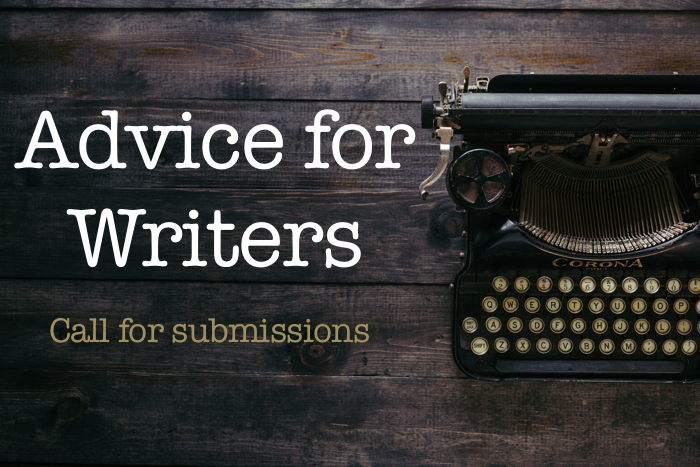 Are you a pubished author? What’s
your top piece of advice for new and emerging authors?
Are you a pubished author? What’s
your top piece of advice for new and emerging authors?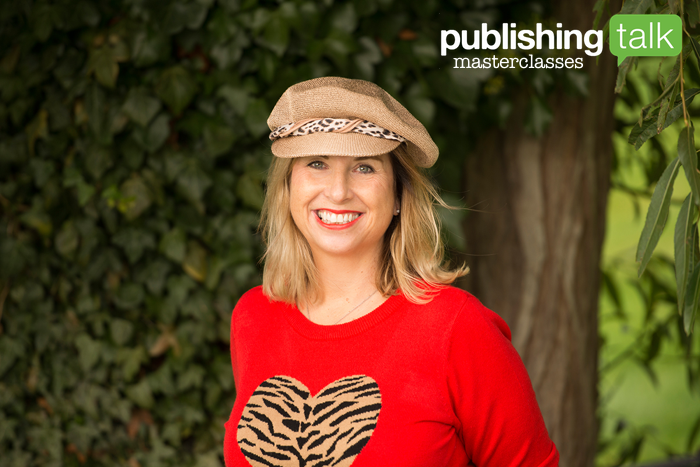
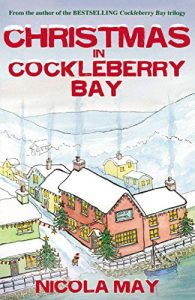
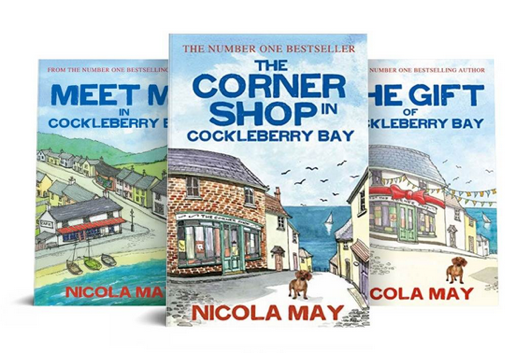
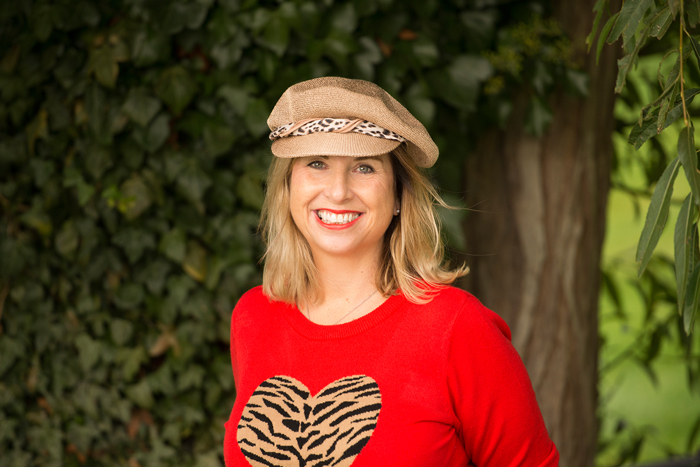
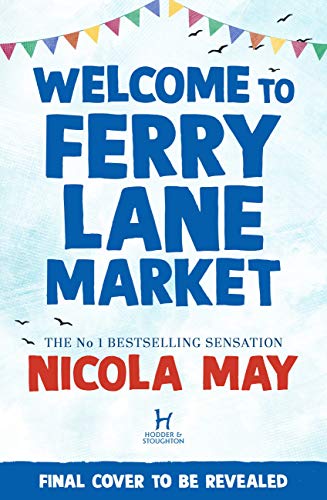
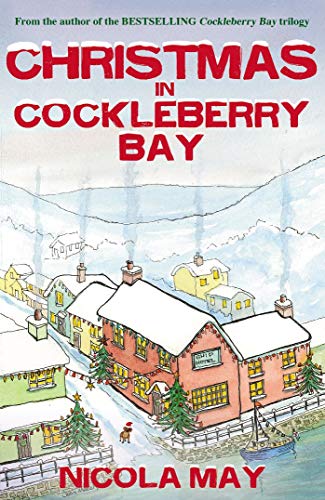
 Welcome to Publishing Talk – an
online educational community for new and emerging authors.
Welcome to Publishing Talk – an
online educational community for new and emerging authors.

No comments:
Post a Comment